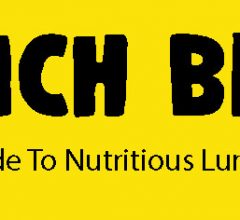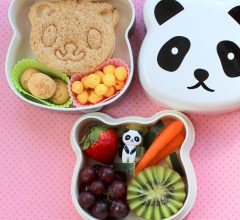From around the age of 5 children head off to school and often start making their own choices about food and meal times can become that bit more difficult!
I’ve put together 5 key nutrients to be mindful of at this age. It’s important to remember that these can be obtained from a well balanced and varied healthy diet without causing too many arguments at meal times!
Carbohydrate: Starchy carbohydrates such as bread, rice, oats, pasta and cereals are required for energy for busy little ones. Where possible, aim to choose wholegrain varieties of carbohydrates for a slower release of energy. Fibre in the diet is especially important to maintain healthy digestion and it also helps to keep us fuller for longer. Ensure kids are well hydrated particularly when consuming fibre. Water and milk are the preferred fluid sources for kiddies.
Protein: Protein is needed for growth and repair of body cells and is particularly important for growth and development in this age group. Protein should come mainly from lean sources of poultry, meat, fish, eggs, pulses, nuts and seeds. Children should be encouraged to consume two portions of fish per week and one of these portions should come from oily fish like salmon, tuna and mackerel. Oily fish contains omega 3 fatty acids which are important for brain development. If children are not too fond of oily fish it may be worth considering an Omega 3 supplement. Ensure to contact your GP to assess individual needs.
Fat: Fat is needed for everyone for energy levels, to maintain body temperature and to make hormones. It is important that children aim to get fat from unsaturated sources of fat rather than saturated sources. Unsaturated fat is in foods like oily fish, nuts, seeds, olive oil and rapeseed oil. Too much saturated fat in foods such as butter, biscuits, cakes, lard and fatty meets can lead to health issues and should be limited. Of course, a little bit every now and then is fine.
Calcium: Calcium works with vitamin D in the body to maintain healthy bones and teeth. Some children may not enjoy eating dairy so it is worth noting alternative sources such as leafy green veg, nuts, seeds and fortified foods. Vitamin D can be obtained from cheese, egg yolk and oily fish in the diet and from sunlight.
Iron: Iron is important as it is needed to make haemoglobin which transports oxygen around the body. Iron can be obtained from green vegetables, red meat, eggs, nuts and seeds and dried fruit. Ensure you have enough Vitamin C in the diet also as this helps with absorption of iron in the body. Vitamin C can be readily found in fruit and vegetables.
All of these nutrients can be obtained by providing children with a varied diet. Explore different food sources and meals to find out what they enjoy. Leading by example and allowing children to participate in cooking can be great ways to boost their intake of different foods.
Have a look at our other blogs and recipe page for wonderful family-friendly healthy recipes! Be sure to drop us a message if you have more questions around children’s health.
Emma













